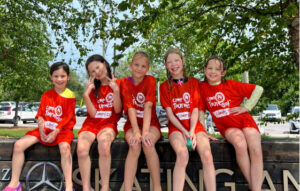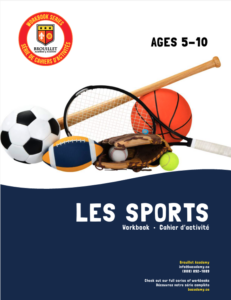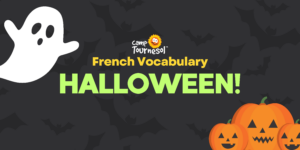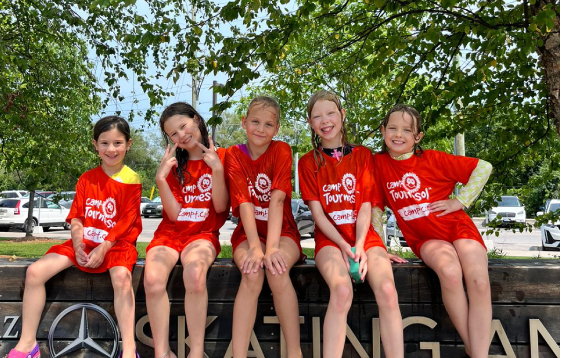You heard that enrolling your child in a French program can help them gain more work opportunities, higher pay and even improve their memory.
But now that your child is in French Immersion, you might be wondering…“now what?”
Speaking French is the Key to Successful Practice and Gaining Confidence
If you’re like most parents, you might rarely (if ever) hear your child having conversation in French. You might even worry about their true ability and confidence to speak in their new language.
Communication is a creative process.
Engaging in conversation in a new language forces our minds to think creatively and pull from memory the appropriate words and phrases we need to communicate our thoughts. In other words, true fluency can only be developed through everyday conversation.
Becoming Competent in French Means Speaking French Outside of the Classroom
Typically, this free-flow, natural French conversation doesn’t happen within the confines of the classroom walls.
As many students have experienced, French is “studied” in class, but English is still the language of choice when it comes to socializing, sports and activities.
But what if you could switch socializing in English 24/7 to French instead?
Try French in Social Situations to Stretch Language Skills
If you were to practice French outside of the classroom, how do you think that would impact the confidence and language skills of your child?
As largest French camp in the GTA, Camp Tournesol has seen first-hand how doing activities, games, sports and socializing in French 24/7 can make even a reluctant French student start speaking with ease and confidence.
After just a few days (or sometimes even a few hours) of French overnight camp, campers find themselves “thinking” in French rather than merely thinking in English and then scanning their mind for the French translation.
French Summer Camp Offers an Awesome Opportunity to be Social in French
Camp Tournesol’s goal is to give French-speaking kids the opportunity to have an intensive French Immersion experience in a fun atmosphere that is nothing like studying in a classroom.
In our day camp programs, it’s commonplace to witness kids who started camp stumbling 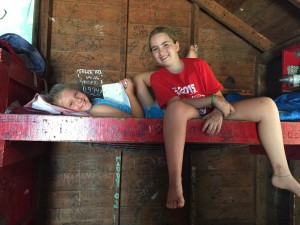 on their words – to then, saying tearful goodbyes in French with their newfound group of friends on the very last day of camp.
on their words – to then, saying tearful goodbyes in French with their newfound group of friends on the very last day of camp.
This is the power of speaking French 24/7.
In fact, parents have said that after campers return home from overnight French camp, they’re surprised to hear their children say, “I can’t remember the English word for that!”
Speaking French Around the Clock Strengthens French Skills Dramatically
When French learners are not continuously switching between their “French brain” and “English brain”, they are able to strengthen their French skills dramatically.
We see a similar phenomenon when we compare French Immersion to core or extended French programs.
In French Immersion, depending on the school board, all or about half of the student’s  classes are taught in French starting in grade 1.
classes are taught in French starting in grade 1.
Whereas in core or extended French programs, students don’t have this French exposure until about grades 5 to 7.
Because students enrolled in full French Immersion programs learn various topics in French, they are exposed to a much richer vocabulary in diverse subjects at a much earlier age. This increases their fluency and allows them to discuss a variety of topics.
More Immersion in French = Greater French Fluency
When it comes to language, the more you immerse yourself, the more fluent you become.
Tweetable: “The limits of my language are the limits of my world” @CampTournesol
Are you interested in learning more about our 2016 French Overnight Camps? Click here for details


